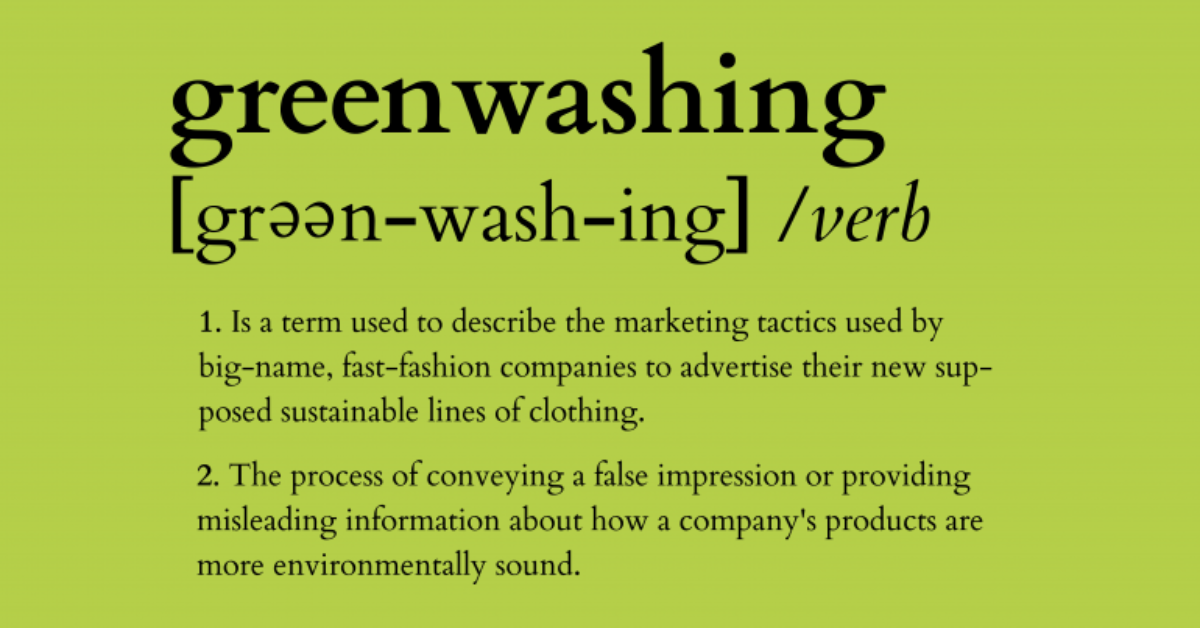In recent years, sustainable investing has gained significant traction as individuals and institutions alike seek to align their financial goals with their ethical values. However, amidst the growing interest in this sector, the term “greenwashing” has emerged as a crucial concept that investors need to understand. But what does greenwashing mean in sustainable investing, and why is it important to recognize?
Defining Greenwashing
Greenwashing is a deceptive practice in which a company or organization exaggerates or misrepresents the environmental benefits of its products, services, or policies. The term is a portmanteau of “green,” referring to environmentally friendly practices, and “whitewashing,” which means to cover up or gloss over negative aspects. Essentially, greenwashing involves promoting an image of sustainability without making substantive commitments or changes that truly benefit the environment.
The Origins of Greenwashing
The term was coined in the 1980s but has gained momentum in recent years as consumer awareness of environmental issues has surged. Companies, under pressure from consumers and investors who are increasingly prioritizing sustainability, have sometimes resorted to greenwashing as a way to appear environmentally friendly without implementing genuine sustainability practices.
Greenwashing in Sustainable Investing
Sustainable investing, also known as socially responsible investing (SRI) or environmental, social, and governance (ESG) investing, focuses on generating long-term financial returns while considering environmental and social impacts. However, the rise of sustainable investing has made it an attractive target for greenwashing.
How Greenwashing Affects Sustainable Investing
- Misleading Information: Companies may provide misleading information about their environmental practices or the sustainability of their products. For example, a business might label a product as “eco-friendly” when it contains minimal sustainable materials or processes.
- Impact on Investor Decisions: Investors seeking to make informed decisions may inadvertently invest in companies that are not genuinely sustainable. This misalignment can undermine the entire purpose of sustainable investing, as funds may flow to businesses that do not deserve it based on their actual practices.
- Erosion of Trust: Greenwashing can erode trust in the sustainable investing sector. If investors repeatedly discover that companies are engaging in greenwashing, they may become disillusioned and less likely to invest in sustainable funds or practices altogether.
Identifying Greenwashing
To avoid falling victim to greenwashing, investors must develop a keen eye for identifying misleading claims. Here are some tips:
- Scrutinize Claims: Be skeptical of vague claims like “eco-friendly” or “natural.” Look for specific information about materials, processes, and sustainability certifications.
- Research Third-Party Certifications: Seek out products or companies that have been certified by recognized third-party organizations. Certifications from groups such as Energy Star, Fair Trade, or the Forest Stewardship Council can help validate sustainability claims.
- Look for Transparency: Genuine companies will provide transparent information about their sustainability practices and goals. If a company is reluctant to disclose information or its practices are not easily accessible, it may be a red flag.
- Evaluate Impact Reports: Companies engaged in genuine sustainability efforts often publish annual impact reports that detail their environmental and social performance. Reviewing these reports can provide insight into a company’s true commitment to sustainability.
The Importance of Combatting Greenwashing
Addressing and combatting greenwashing is vital for the integrity of the sustainable investing market. By recognizing and avoiding greenwashing, investors can:
- Make Informed Decisions: Avoiding greenwashing allows investors to allocate their funds to truly sustainable businesses, ensuring their investments have a positive environmental and social impact.
- Encourage Genuine Change: When investors prioritize companies with real sustainability practices, it can incentivize other businesses to adopt genuine sustainability measures to attract investment.
- Support Transparency and Accountability: By demanding transparency, investors can hold companies accountable for their sustainability claims, fostering a market environment where ethical practices are rewarded.

Leave a Reply